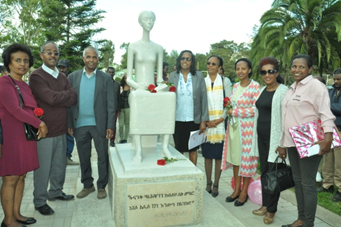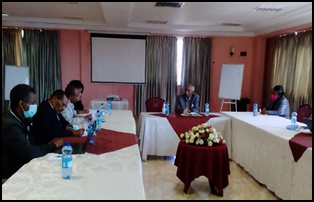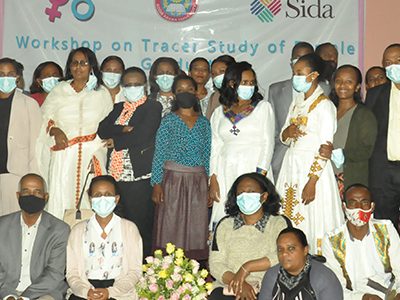

AAU Convenes a Conference on Academic Freedom in Ethiopian Higher Education Institutions
Addis Ababa University (AAU) in collaboration with Embassy of Sweden to Ethiopia convened a Conference on Academic Freedom in Ethiopian Higher Education Institutions in the context of the Autonomy of Addis Ababa University, in attendance of various intellectuals including AAU’s president at Ras Mekonnen Hall on November 24, 2023.
Samuel Kifle (PhD), Interim President of AAU, in his opening remarks said that Academic Freedom will bring special privileges to the higher institutions to attract talents by freely choosing outstanding students.
“The growth of higher education has entered a new era. Being the first autonomous grand university is a major honour bestowed upon AAU by the government, which is committed to establishing autonomous institutions,” Dr. Samuel added.
According to the President, AAU is expected to become fully autonomous in the next two to three years with the implementation of a new leadership, structure, and governance as well as administration system that will make it more competitive and innovative.
Mrs. Asa Andersson, Deputy Head of Mission, Development Cooperation and Delegate of His Excellency Mr. Hans Henric Lundquist, Ambassador of Sweden to Ethiopia, said on the conference that Academic Freedom is necessary for scientific research of high quality and hence it should be dependent on a free and open debate, review, criticism and collegiality among peers.
Professor Brook Lemma, Professor of Biology at AAU, reminded the past that various unrests that occurred in the country created uneasiness in the interactions of the University communities, academic discussions and mobility.
Professor Kwadwo Appiagyei-Atua from School of Law, University of Ghana, in his slide presentation entitled: “History and International Principles of Academic Freedom and Recommendations of UNESCO”, said that the ethos of rights and democracy (manifesting themselves in scientific/academic freedom) help to create the congenial conditions for the production, dissemination and application of knowledge to solve societal problems and improve human well-being, thereby engendering development.
Professor Nelson Casimiro Zavale, from Mozambique, in his demonstration entitled: “Academic Freedom in Mozambique” noted that limitations to institutional autonomy increased due to a reduction in funding; restrictions to academic/scientific freedom enhanced due to the increasing of authoritarian government.
Emeritus Professor Berhanu Abegaz from the department of Chemistry, AAU, said in his part, “There is a wide understanding that the basic function of universities, the pursuit of truth and the production and transmission of knowledge, cannot be fulfilled in the absence of university autonomy.”
Staff reporter: Theodros Shewangizaw
Photos: Fikremariam Beyene
Editor: Abraham Girmay








